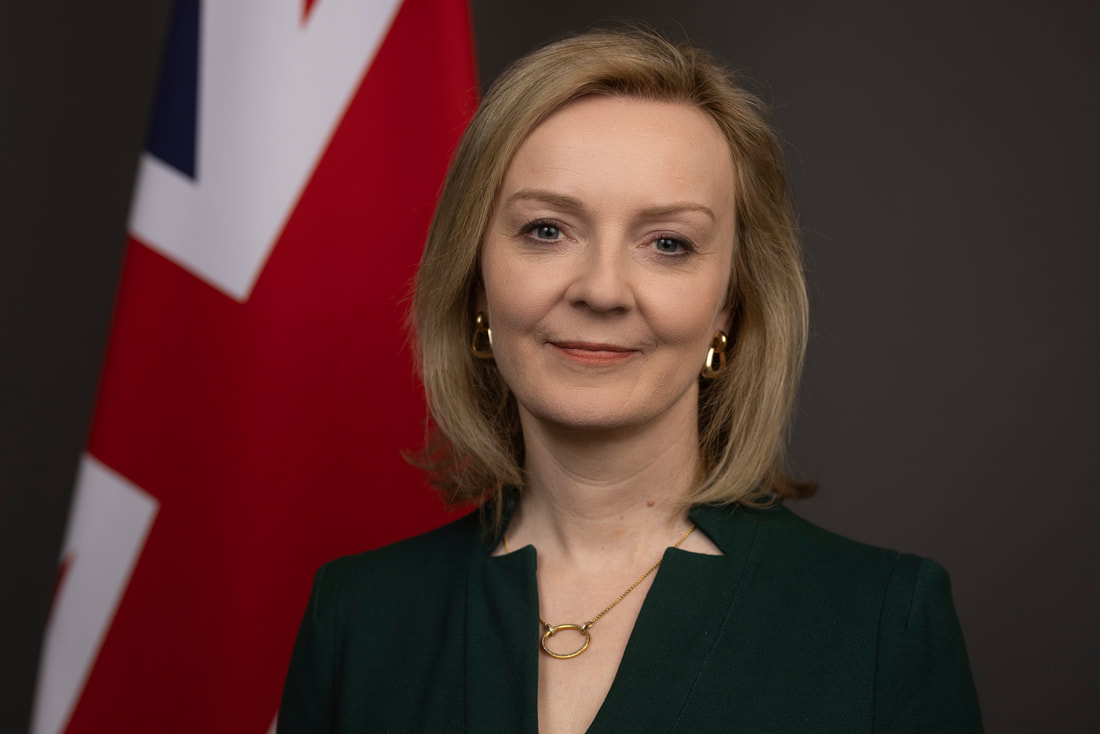|
In an extraordinary turn of events, Liz Truss's tenure as Prime Minister of the United Kingdom was marked by brevity and turbulence. Her rapid fall from grace (at the start of September 2022, she wasn't PM yet; by the end of October, she had been replaced). Her story provides a compelling case study in political missteps and miscalculations. This article examines the three fundamental reasons behind Truss' downfall.
1. Economic Policy Missteps and Market Turbulence: Central to Truss's downfall was her government's economic policy, particularly the controversial mini-budget announced by her Chancellor, Kwasi Kwarteng. This budget included significant tax cuts, mainly benefiting the highest earners (reducing the top income tax rate from 45% to 40%), and lacked a clear funding strategy, leading to a severe backlash from both the public and financial markets. The announcement saw the pound sterling plummet to a record low against the dollar, a clear indication of lost confidence. Government borrowing costs soared, as evidenced by the dramatic rise in the yield on 10-year UK government bonds, which leapt from around 2.5% in early September to over 4% following the budget announcement. This economic turmoil was pivotal in eroding Truss's political (and the UK's financial!) capital. 2. Party Disunity and Leadership Challenges: Truss's leadership was further undermined by stark divisions within the Conservative Party. Her approach, characterized by a marked shift towards a more radical economic liberalism, alienated many in her party. This disunity was quantitatively evident in the House of Commons, where she faced significant rebellions from her MPs. The lack of party cohesion was not only a symptom but also a catalyst for her downfall. It impaired her ability to govern effectively, leading to a series of U-turns on policy decisions, which further eroded her dwindling authority and credibility. 3. Public Discontent and Eroding Trust: Finally, Truss's fall can be attributed to a rapid decline in public trust and approval. Polls conducted during her premiership indicated a significant loss of public confidence. For instance, an Ipsos MORI poll in early October 2022 showed a staggering decline in her approval ratings, with only about 20% of the public satisfied with her performance – a historical low for any sitting Prime Minister. This public discontent was fueled by her economic policies, perceived as favoring the wealthy, and her government's handling of the cost-of-living crisis, which continued to escalate under her watch. The end came swiftly ... Liz Truss's tenure as Prime Minister serves as a stark reminder of the volatility of political fortunes. Her rapid descent from the zenith of power was a confluence of economic miscalculations, party disunity, and a steep decline in public trust. These factors, intertwined and mutually reinforcing, culminated in one of the shortest and most tumultuous premierships in British history. Truss's story is a cautionary tale for political leaders, underscoring the importance of sound economic policy, party unity, and public engagement in the high-stakes arena of politics. Written by Versus History Guest Contributor Emily Hart-Vallance.
0 Comments
Leave a Reply. |
Categories
All
Archives
April 2024
|

 RSS Feed
RSS Feed